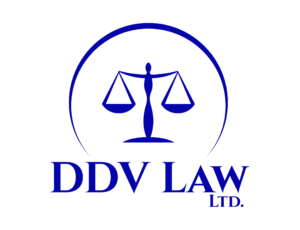Small business owners are generally familiar with the advantages of a Limited Liability Company (LLC). Still, your LLC can also be an essential tool to avoid gift and estate taxes when passing assets to your heirs. An LLC acts somewhat like a partnership and a corporation. The corporate aspect protects the owners from liability. At the same time, the partnership permits income reporting and company losses on their personal tax returns avoiding double taxation of both the company and its individual owners. LLCs also operating with less fees and filing requirements than a stand-alone corporation and have fewer rules about the company’s structure and management.
While all states have different laws governing LLC rules, within your estate plan, a family LLC can:
- In effect, reduce the estate taxes your children would need to pay on their inheritance.
- Retain management and control over your assets by restricting your children’s membership interests.
- Permit distribution of inheritance to your children, during your lifetime, with a reduction of gift taxes.
Creating a family LLC with the intent to maximize its advantages within your estate plan begins with a qualified estate planning attorney with a strong background in financial planning. LLCs typically acts around a business venture, but in the context of a family LLC, it is permissible to operate as a venture wherein you only intend to make a profit. You do not have to make a profit; having the intention to do so is sufficient.
When choosing a name for your LLC for estate planning purposes, many people choose their family name or another meaningful family phrase to associate with the entity. Articles of organization are simply the LLC name, owners, registering agent, contact, and other essential information. To file your articles of organization and register your family LLC, you will need to pay any required fees. These fees vary by state and can be as little as one hundred or several hundred dollars. Some states will require a notice of intent to create an LLC as well. Finally, the operating agreement structure will set out the rights and obligations of the LLC owners. Within an estate planning context, indicating which owners have rights to alter or transfer property and who has voting powers will be identified, as will the description of voting powers, required owner’s meetings, and the division of profits and losses.
Once the LLC exists according to your state’s law process, transferring of assets can begin. The market value of the movable assets in LLC units of value is not unlike that of stock in a corporation. If you desire, once these assets are in the LLC, ownership of the units becomes transferable to your children or grandchildren. However, for tax advantages, most family LLCs restrict other members’ ability to sell their LLC shares, make company withdrawals, or transfer their membership in the company.
From a tax perspective, the benefit comes into play if you are the manager of the LLC and your children are non-managing, non-voting members. This structure permits the value of the transferable units to be steeply discounted, often up to forty percent of their market value. Your children are now receiving an inheritance advance, but at a lower tax burden on personal income. Additionally, the overall value of your estate reduces, which lowers estate tax when you pass away.
You may transfer just about any asset into an LLC. Typically, these assets categories are:
- Cash – It is permissible to transfer money from a personal bank account into your LLC and then distribute that cash among the LLC members.
- Property – It is permissible to transfer titles to land and structures built on that land into your LLC. In doing so, check with any mortgage holder before making such a transfer, as their approval may be a requirement.
- Personal Possessions – It is permissible to transfer ownership of stocks, precious metals, automobiles, boats, artwork, important jewelry or watches, or any other belonging of significant value into your LLC.
It is worth noting that if parents hold a family vacation or rental property in their LLC, instead of deeding the property to all the children, they may opt to transfer the same amount of property membership units to each child within the LLC. This ability is crucial as it makes fractional deeds unnecessary. Another real estate benefit of a family LLC is evident if you own property outside your residential state. Probate occurs in every state you own property upon your death, often called ancillary probate, which can be expensive and time-consuming. Your family LLC can accomplish the same goal by transferring the out-of-state property into your LLC. After your death, the LLC continues to hold the out-of-state property and pass it to the LLC members without the need for probate process and court intervention.
It is also worth noting that the asset protection of a family LLC is far more flexible than a trust which must be irrevocable to provide the same asset protection. An irrevocable trust takes away the possibility to change, alter, or cancel (with rare exceptions) the trust. Creating a family LLC may be more advantageous for your estate planning than a trust.
A family LLC is a powerful tool to manage your assets and pass them to your children. By assigning yourself as the LLC manager, it allows you to maintain control over your estate while providing significant tax benefits to you and your children. It also can simplify the transfer of real estate property and protect your heirs from the probate process without the need for a trust. Talk with your estate planning attorney and find out if a family LLC will benefit your estate plan.
Please Contact our Chicago area offices by calling 312-878-0155 to schedule an appointment.

